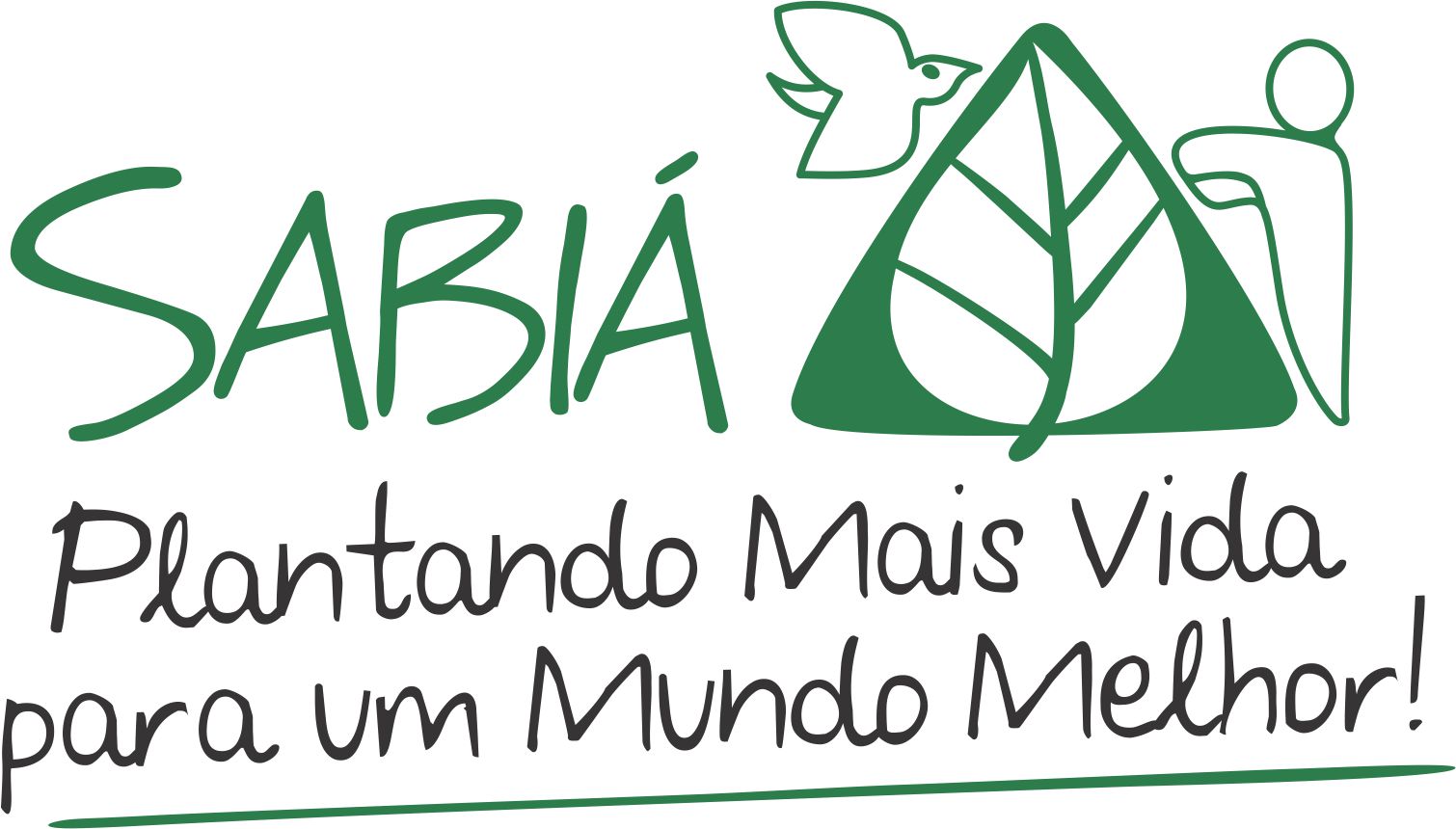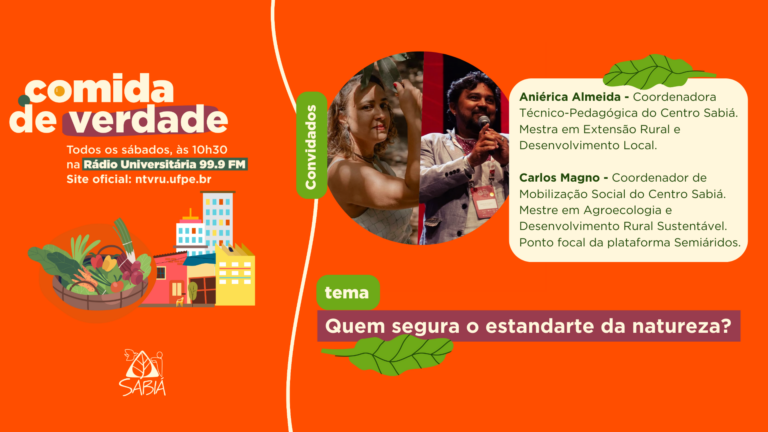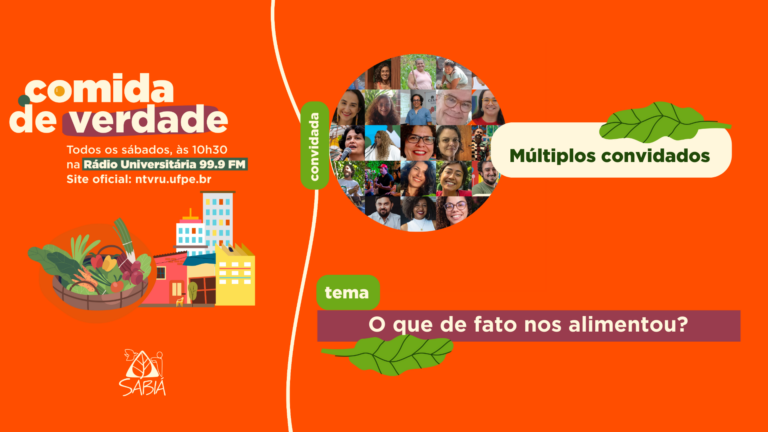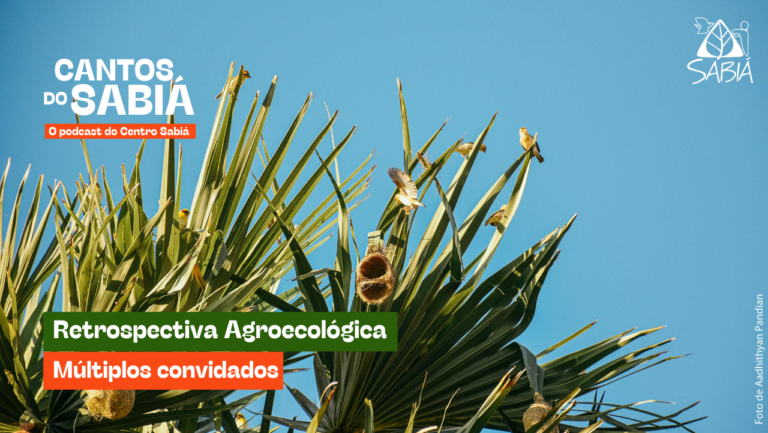FOJUPE brings together young people from different regions of Pernambuco to reflect on rights and rebuild youth policies in the State
The Assembly of the Youth Forum of Pernambuco 2023 took place between June 9th and 11th at the Santuário das Comunidades, in Caruaru, Pernambuco
Thamires Lima
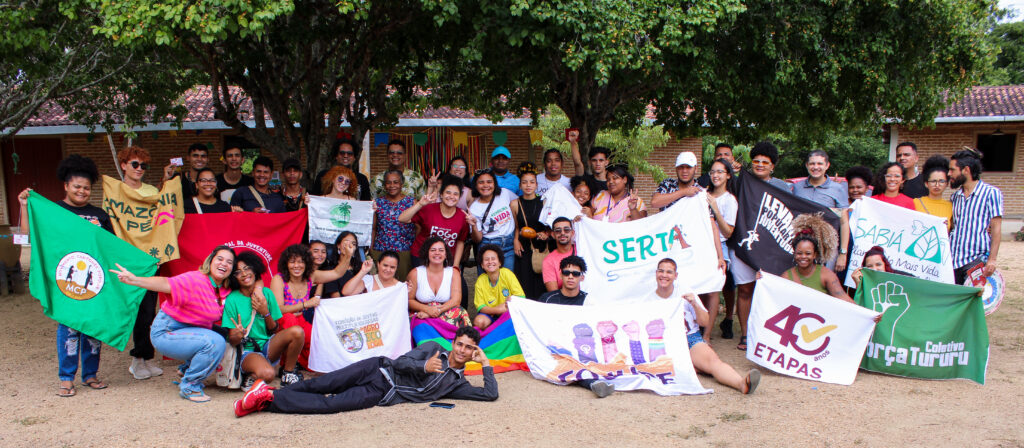
More than 50 young people from the Metropolitan Region of Recife, Agreste, Zona da Mata, and Sertão of Pernambuco participated in the Assembly of the Youth Forum of Pernambuco (FOJUPE), between June 9th and 11th, at the Santuário das Comunidades, in Caruaru, representing movements, collectives, and organizations that fight for the rights of young people.
Suzana Santos, FOJUPE coordinator for RMR, says that the assembly is the moment to strengthen and potentialize the youth. “This year we had the perspective of gathering young people to encourage social control spaces, already thinking about the youth conferences that will take place in the second semester. Our perspective is to rebuild our youth policy, one that is based on social participation, plural and diverse,” he says.
The opening of the meeting, during the night of Friday (09), included moments of welcome and presentation of the participants. Gleison Xukuru, from the Xukuru do Ororubá people, located in Pesqueira, took the barretina as a symbol of representation of his people. “Here we find the diversity of people and movements, and this strengthens our understanding as a struggle and social movement,” he says.
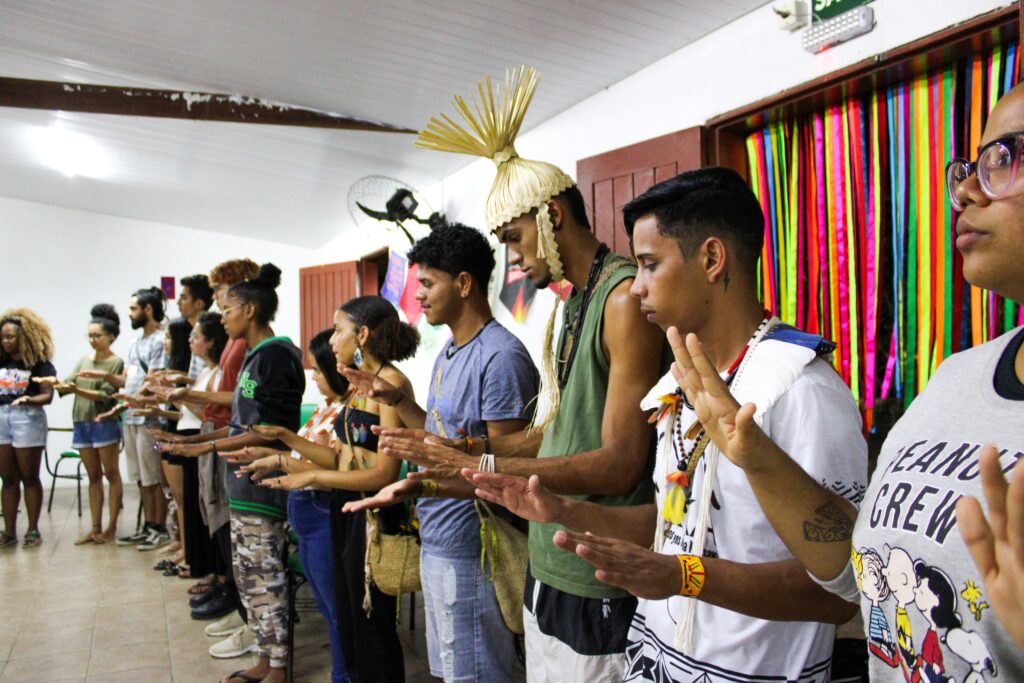
The next day began with a panel on youth rights. Using the methodology “Young people, know your rights”, developed by the NGO Diaconia, the young people had the opportunity to reflect on and debate the historical process of building the public policy for young people in Brazil in the current context of Brazilian youth. The methodology has been used as a tool to disseminate the Youth Statute, which is 10 years old this year, and provides for the rights of young people, the principles and guidelines of youth public policies, and the National Youth System.
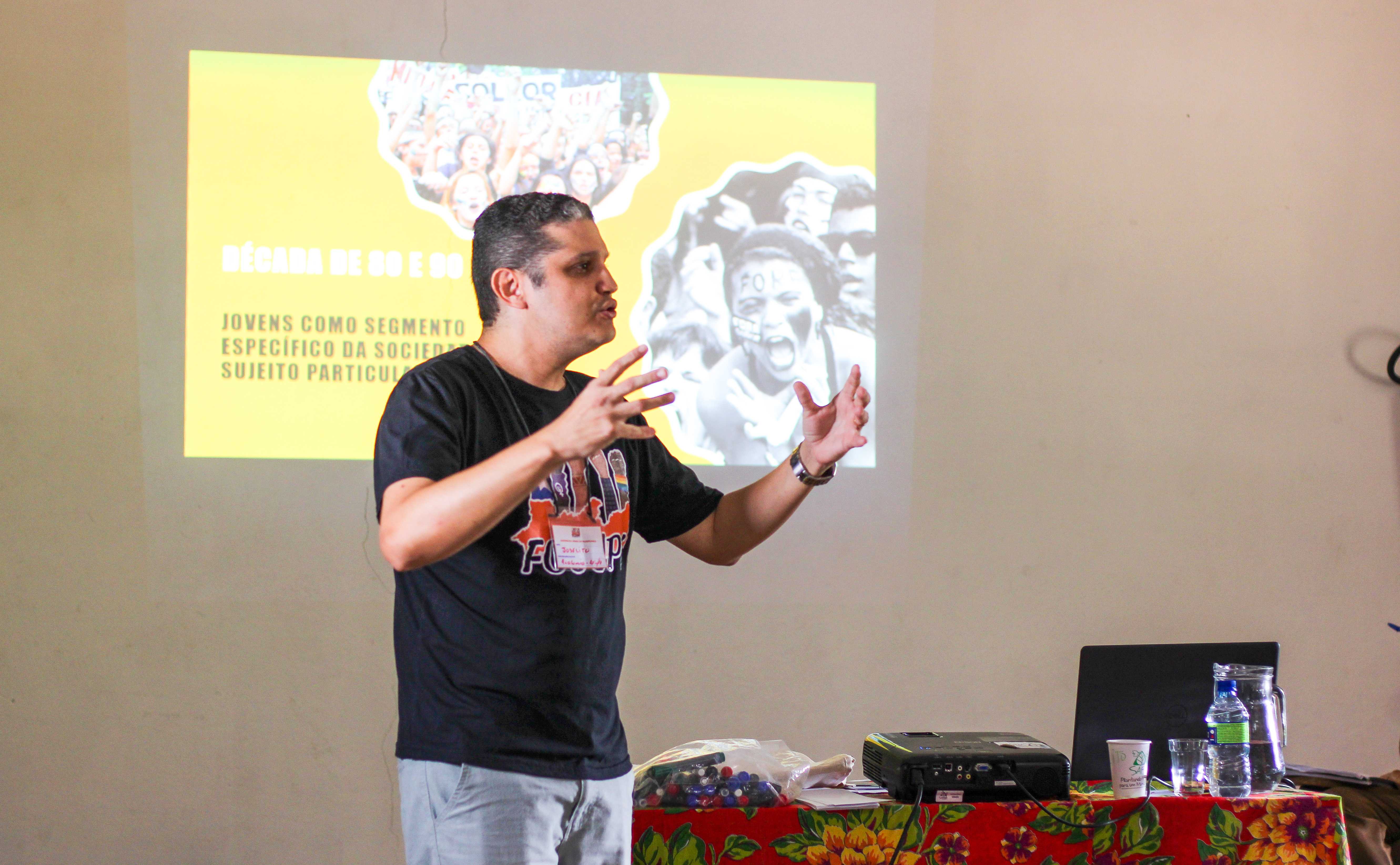
Photo: Thamires Lima/Diaconia
Joselito Costa, panel facilitator and Diaconia representative, talks about the importance of promoting the understanding of young people about their rights. “It was an opportunity for many young people to access the Statute for the first time, and it was also an opportunity for many young people, who already know the Statute and their rights, to further deepen this debate as a way of appropriating, more and more, the 11 rights provided for in the Youth Statute.
Still in the morning, 11 groups were divided in order to discuss the rights set forth in the Statute, such as: the right to citizenship and social and political participation, the right to education, the right to professionalization, work, and income, the right to diversity and equality, the right to health, the right to culture, the right to communication and freedom of expression, the right to sports and leisure, the right to territory and mobility, the right to sustainability and the environment, the right to security, and access to justice. Each group performed an analysis on which rights are effective and which are violated.
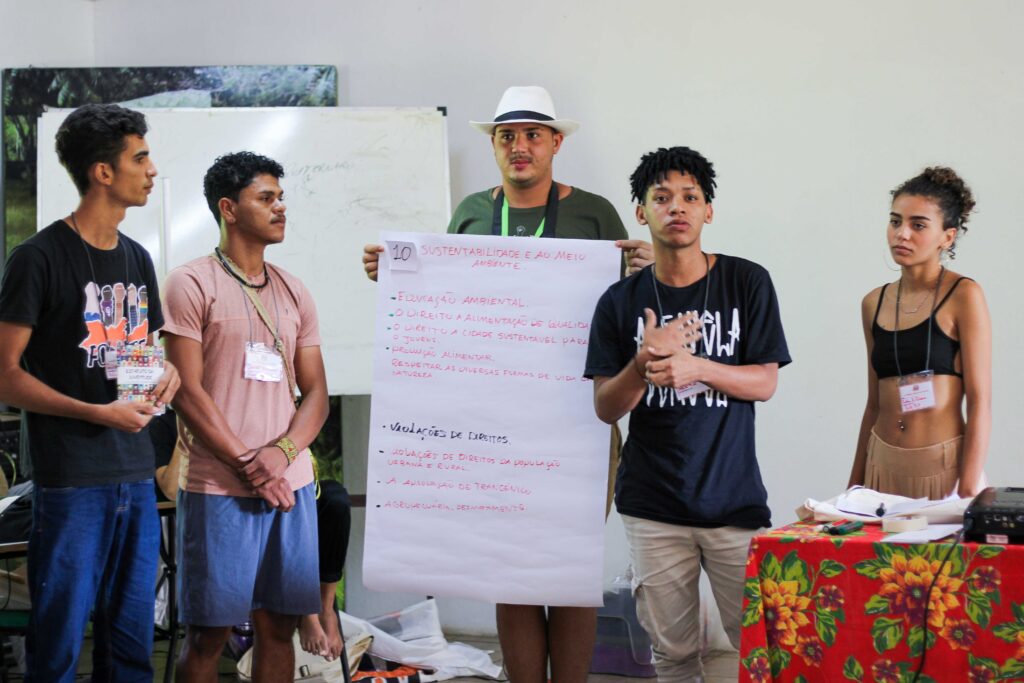
Photo: Thamires Lima/Diaconia
Vitória Roberta, 19, quilombola from Quilombo Varzinha dos Quilombolas, in Iguaracy, in the Sertão do Pajeú, represented the Pastoral Land Commission (CPT) and debuted her participation in the meeting. “I felt a lot of belonging when I saw so many traditional peoples and I was able to learn a lot about my rights. I’m going back to my territory with many ideas and with a lot of will to put them all into practice. I see that FOJUPE is fundamental to continue fighting fascism, machismo, ethnocide, and everything that kills us and our mother earth,” says Vitória.
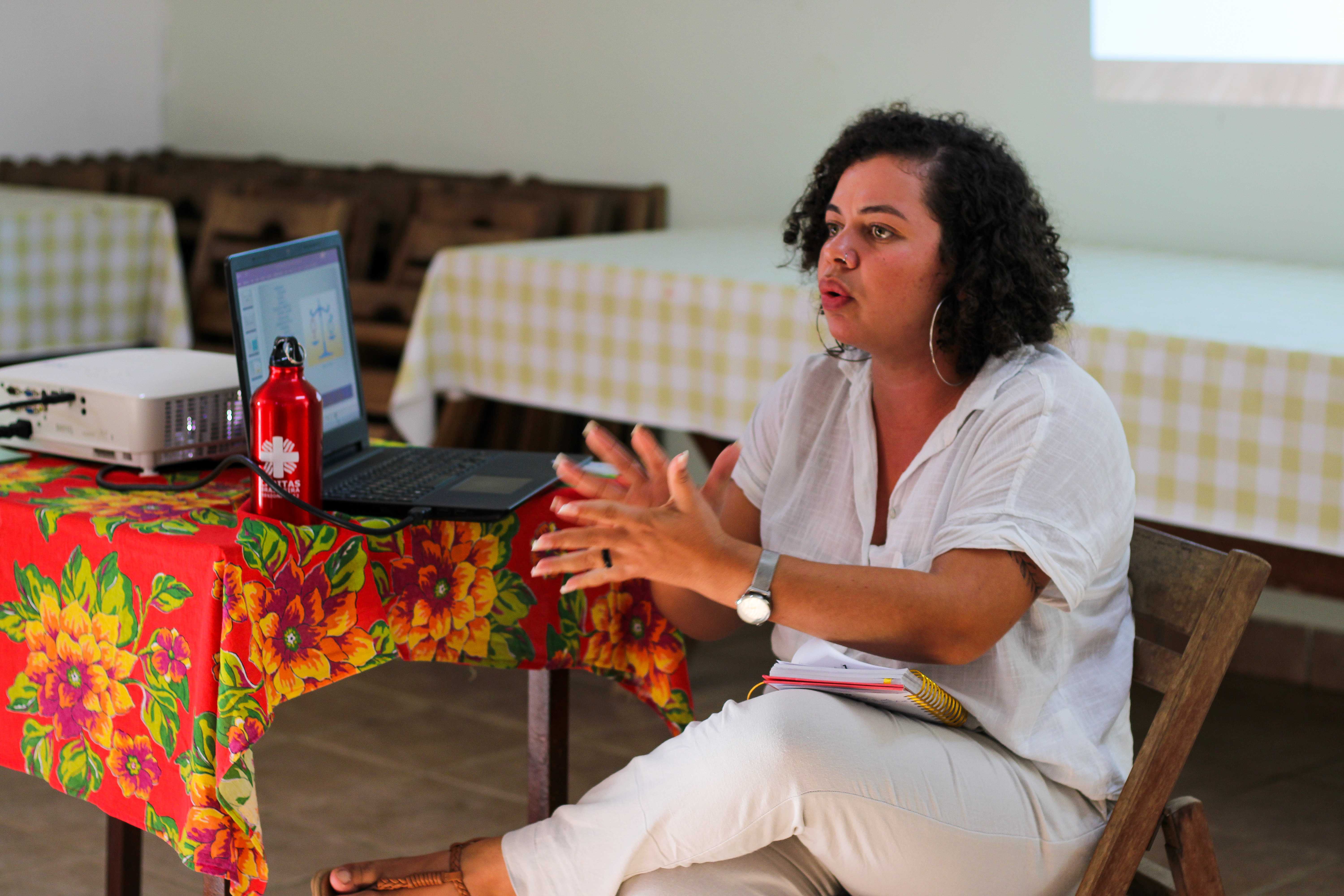
Photo: Thamires Lima/Diaconia.
On Saturday afternoon, thematic carousels were held on climate change and agroecology; promotion of gender justice and racial equity. Joelma Carla, representative of the Instituto de Protagonismo Juvenil, from Agreste, facilitated the group that reflected on issues related to gender justice. “It was very empowering to be with this diversity of youth to debate about the different realities and to deconstruct machismo, racism, LGBTQIAP+phobia through dialogues. We had the opportunity to build new perspectives and strategies as collectives and come out strengthened to build a better reality for the Pernambucan youth and their territories. In addition, to understand that, despite our differences, we play a fundamental role in the transformation of our country,” says Joelma.
Janaína Ferraz, a social educator from the Centro Sabiá, talks about the importance of reflecting on agroecology and climate change with young people. “We have seen the impact of climate change on the lives of all subjects, such as the floods that the population of Recife has experienced with the rains, among others. Agroecology comes as an alternative to these problems with the objective of caring for the environment and human relations, respecting individuals.”. And he also reinforces: “These are urgent issues that we need to reflect on and debate in order to find solutions to overcome and mitigate the effects of climate change through individual and collective actions”, he says.
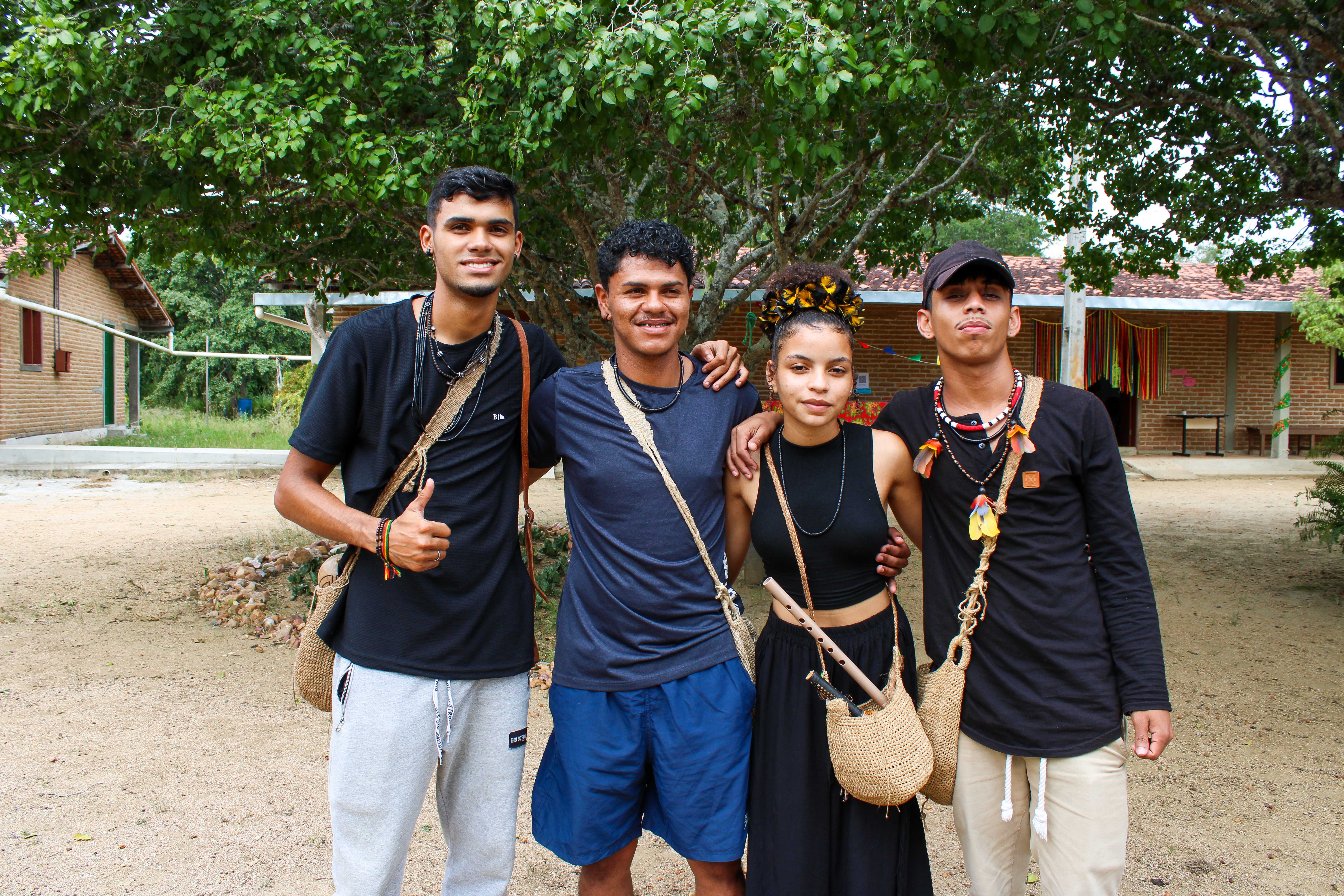
Photo: Thamires Lima/Diaconia
The closing of the FOJUPE assembly included the sharing of ideas about the answers to the demands of the youth in each territory and the election of the new coordinators who will lead the forum. Joana, from the Truká people, located on Assunção Island, in Cabrobó, reinforces the importance of indigenous representation at the meeting and the power of youth to change their realities. “Usually in spaces like this, the indigenous peoples are forgotten, and seeing that the Kapinawá, Xucuru, and Truká peoples were there, not only with my relatives, but seeing young people from all over Pernambuco, was very important. It just showed that we, young people, are not the agents of the future and the past, we are agents of the now. We have the power to change our territories and being here was very empowering for my journey”, she says.
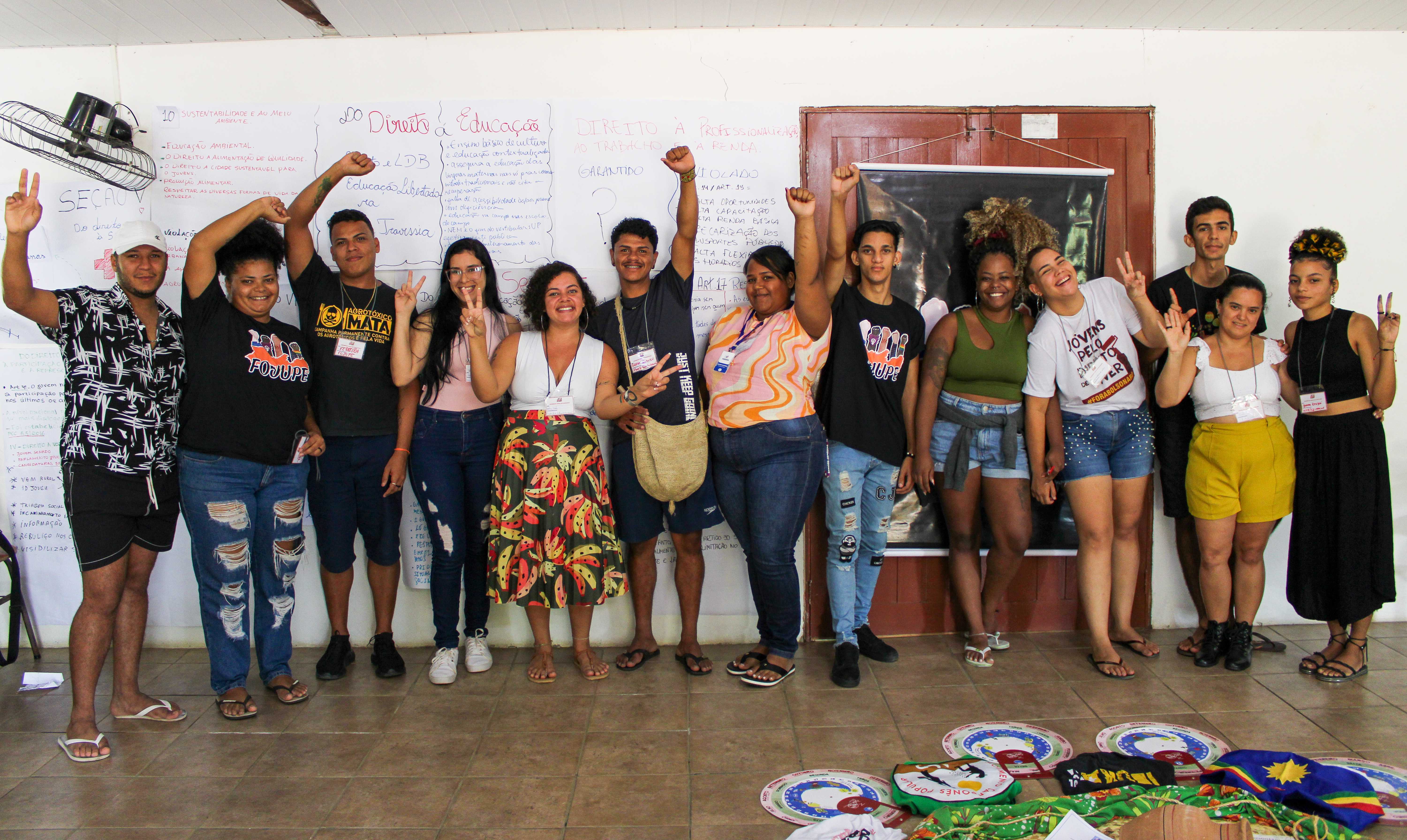
Photo: Thamires Lima/Diaconia
Ferreira Lima, from Zona da Mata, participated for the last time as coordinator of his territory and talks about the importance of resuming the policies for youth diversity. “After four years of dismantling youth policies, we can gather, listen, and organize the struggles so that youth policies for the countryside, the cities, the forest, the waters, and the peripheries can be executed in these spaces. It was essential to listen to the demands of each and every one of those who came to plan actions and build possibilities to seek resources to promote safety and food for the youth of Pernambuco, especially the black, LGBTQIAPN+, women, indigenous, and quilombola youth, so that all of them are welcomed and have their rights guaranteed.
The Youth Forum of Pernambuco has existed for 13 years and is composed of several groups, collectives, youth organizations, and individuals from the four regions of the state, as well as civil society organizations that work to defend and promote the rights of youth. They are: Sabiá Center, Northeast Women’s House, Diaconia, Equip, Etapas, FASE, FETAPE.
Nothing found.

